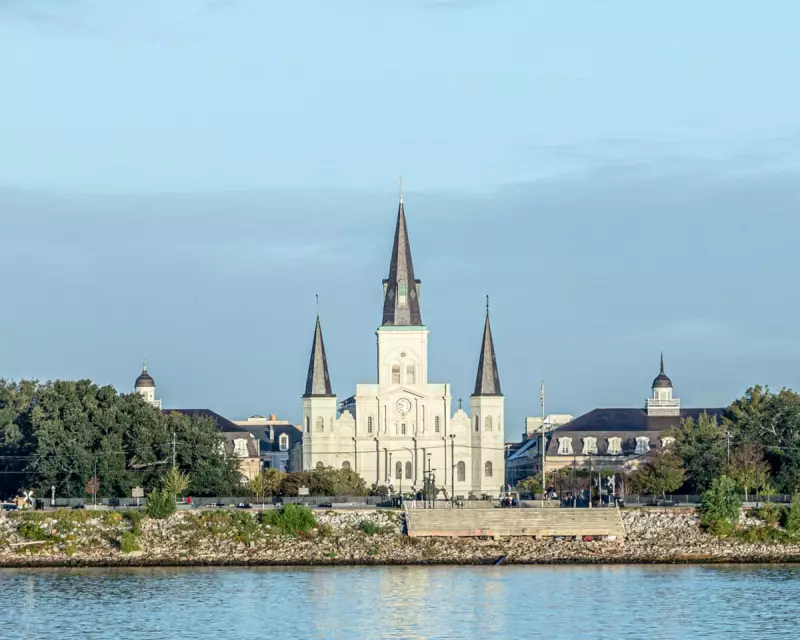
A crucial three-week confirmation trial has commenced that will determine whether the Roman Catholic Archdiocese of New Orleans can proceed with its $230 million settlement for clergy abuse survivors, potentially concluding one of America's longest-running and most expensive church bankruptcies.
The Bankruptcy Battle Reaches Critical Phase
US Bankruptcy Judge Meredith Grabill now faces the weighty decision of whether to approve a compensation plan that has been five and a half years in development. The ruling will determine if the settlement fairly addresses the claims of approximately 650 abuse survivors and dozens of other creditors who have endured repeated delays and contentious negotiations.
The legal proceedings have been further complicated by a 2021 state law that granted survivors of decades-old child sexual abuse the right to sue their abusers, adding another layer to an already complex bankruptcy case.
Parishes and Schools Drawn Into Settlement
In a significant development, the court has initiated what attorneys describe as a "mini-bankruptcy" process, formally pulling 150 parishes, schools and ministries into the case. These affiliated entities, known as apostolates, will collectively contribute $60 million to the overall settlement.
In exchange for their financial contribution, these organisations will receive protection from liability for any abuse that may have occurred on their properties or during their events. This represents a dramatic shift from the archdiocese's previous position, having insisted for three years that individual parishes and schools wouldn't need to contribute.
Parishioners React to Financial Burden
The sudden financial responsibility has created uncertainty and concern among Catholic congregations across New Orleans. Archbishop Gregory Aymond acknowledged in September 2023 that affiliates would need to contribute through what's known as a "channeling injunction".
Howard Rodgers, a longtime member of the former St Gabriel parish, described the relief felt when his current church, St Martin de Porres, learned that an anonymous donor would cover their portion of the settlement. "That brought some relief to our church," Rodgers said, expressing hope that this development marks "the final chapter" in a process that came as "a great surprise a couple of years ago".
Across the archdiocese, pastors delivered varying messages about the financial impact. At St Dominic in Lakeview, Reverend Wayne Paysee revealed the parish's share would be $50,000, paid from an endowment - a figure he described as far lower than initially feared.
However, the archdiocese has not publicly explained how the $60 million burden is divided among the 150 affiliates. If divided equally, each would owe approximately $400,000 - eight times higher than St Dominic's reported assessment - leaving many parishioners with unanswered questions.
Mixed Reactions From the Catholic Community
Alden Hagardorn, president of the Friends of St Henry church in the Uptown neighbourhood, captured the conflicted feelings many parishioners experience. "Do we, as parishioners, want to shell out money for something that we feel was done by perpetrators?" he questioned, before adding: "But we're all part of one Catholic family... We've got to cover for that. So, if this ends it, I have no problem with it."
In a recent letter to the community, Archbishop Aymond sought to reassure parishioners that the "prepackaged bankruptcies" would "protect your parish assets now and into the future from liabilities for past acts of abuse".
Anonymous Donors and Controversial Measures
The settlement process has seen several unusual developments, including significant anonymous donations. WWL recently reported that an anonymous donor pledged to cover the portion owed by Second Harvest Food Bank, a church-affiliated non-profit that had initially resisted using funds raised to feed needy families across south Louisiana.
This resolution came only after Archbishop Aymond changed Second Harvest's bylaws to grant himself the power to fire the longtime CEO without cause, clearing the path for the food bank to join other apostolates as settlement contributors.
Survivors Await Long-Awaited Resolution
For abuse survivors, many of whom have waited decades for recognition and justice, the trial represents a critical milestone. Although 489 of 491 survivors who voted on the proposed plan have approved it, they will have their opportunity to testify in the case on 2 December.
Judge Grabill's ultimate decision will determine whether the settlement is workable and whether it finally delivers the accountability and closure that has eluded the Catholic community for generations in a scandal that has profoundly shaken faith and trust.





